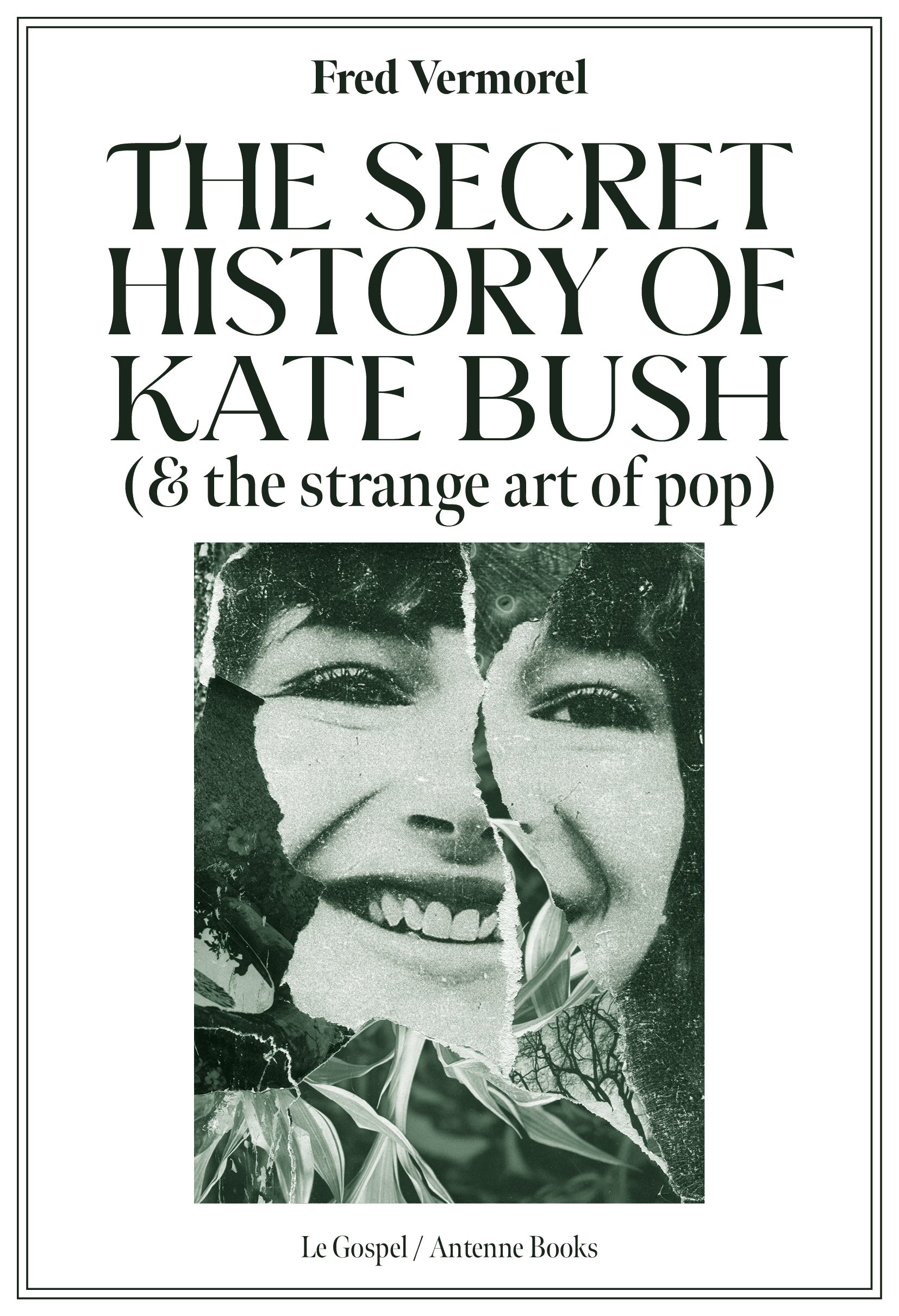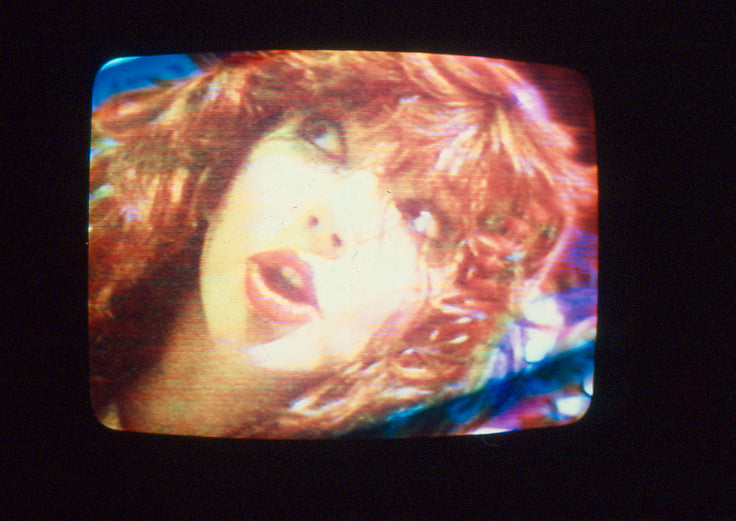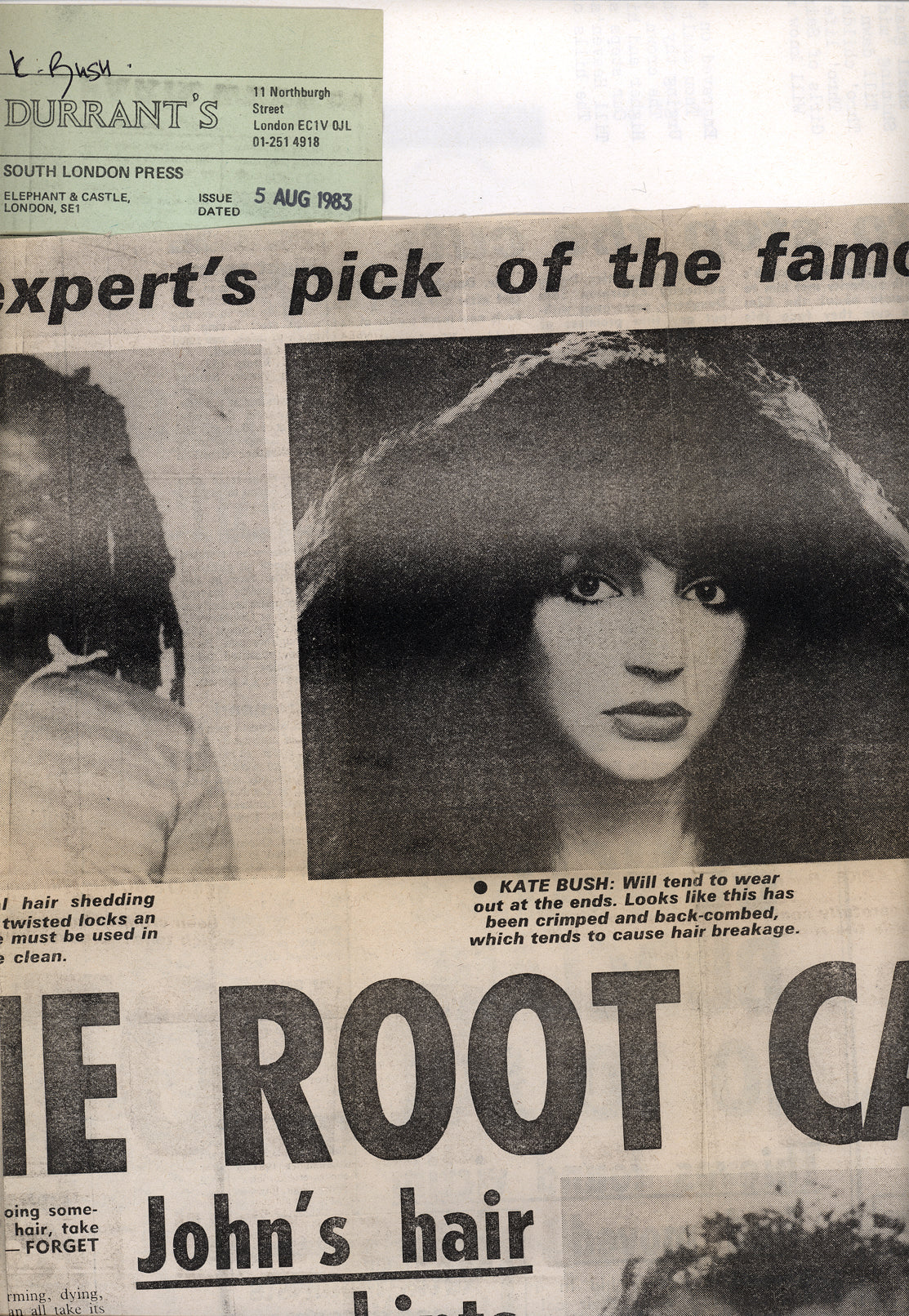
Fred Vermorel and Adrian Durand of Le Gospel Publishing in Conversation at the London launch of The Secret History of Kate Bush
Author
Holly Connolly
Published
February 05, 2025
First published in 1983, Fred Vermorel’s The Secret History of Kate Bush (And The Strange Art of Pop) has had a resurrection these past few years, with its initial reissue by the independent French press Le Gospel. A book which is as much a kind of cultural anthropology of fandom as it is a consideration of the elusive magnetism of Kate Bush, today Vermorel’s text reads as timeless, perhaps because it didn’t adhere to the publishing conventions of its time.
Seeking work that offered something different to conventional music publishing, Le Gospel’s founder Adrien Durand was recommended Vermorel’s book, and was instantly hooked. “When I started Le Gospel, I wanted to propose a really different text, especially in terms of music. I was a bit frustrated with all the existing music literature,” he says. “Then one of my best friends told me, “You're starting this press, you really have to translate Fred's book. It's an incredible text about music.” I read it and thought it was really subversive and funny. And even 40 years after its original publication, it was still really relevant.”
From this first French reissue came the co-publication with Antenne: a new English edition, with special afterword by Vermorel. To celebrate The Secret History of Kate Bush’s new lease on life, we piled into a pub in Soho to hear Vermorel in conversation with Durand. Here edited and condensed for clarity, you can catch the highlights from their discussion.
I was looking for a pop star to deconstruct
Adrien Durand: In the introduction to the book you write that you are a ‘sixties person’. Can you begin by giving us some of your own history and cultural context?
Fred Vermorel: When I was 16 I went to Harrow Art College, where I met Malcolm McLaren, and my life changed after that. I also introduced Malcolm to Vivienne [Westwood], because Vivienne was the sister of my best friend, Gordon. I grew up with those people, and we were very countercultural. We were late to the hippy thing, and I think we felt rather resentful of the earlier people who had garnered all this glory and done all these interesting experiments, whereas we were sort of like the juniors trailing in the background. I think that gave us a bit of an edge, a bit of anger. We were hippies, but we were against hippies as well, and we wanted to try and do something a bit more radical.
AD: You have written two books on Kate Bush. Why does she fascinate you so?
FV: I chose her because I wanted to find somebody who was a suitable receptacle for my thoughts. I was looking for a pop star to deconstruct, and I didn't want to do it with someone who would be here today, gone tomorrow. I had a hunch that she would be around for some time, and she still is, very much so, a presence and a weight. She was a serious person as well, which interested me because she was not in a serious industry.
AD: What was your first encounter with her music?
FV: That was television, like a lot of people. I came home a bit drunk from the pub one night, turned on the television, and there she was, singing “Wuthering Heights”. I thought, ‘Wow, that's interesting.’ I wasn't quite sure how to start a book or what the ramifications would be, but I just got stuck into researching it. I approached her and her management, and they didn't want to know anything about it, which actually made it much more intriguing.

I wanted to do something which played with the idea of celebrity
AD: In the books you assign yourself the role of Kate Bush’s biggest fan at that time.
FV: I was interested in producing a book about the music industry, and I was very interested in why people become fans and why they become so obsessed with celebrities, who often aren't even very interesting people. I thought that the best way I could understand this would be from the inside; not looking at fans and asking them, but by being a fan myself. And Kate Bush was the only person I could consider that I might be a fan of.
AD: Tell me about the two different projects.
FV: In the first book I wanted to do something which played with the idea of celebrity, and which would be kind of a pisstake of the way that the media treats celebrity. It was actually a pamphlet, not a book, and I deliberately produced it to look like an EMI Records brochure – it was very glossy and stupid. It followed her career and ended on the night of her conception, that’s how silly it was. To my amazement, it worked a treat. I think people were buying it for the vibe and for the pictures as much as anything else. Also, at that time there was very little information about her, because she was resisting giving interviews or doing any kind of normal publicity.
AD: And then why did you want to write a further book?
FV: I was still interested in Kate Bush after the first project finished, so I decided to pursue it a little bit more. I don't know how I had the idea of producing a book which traced her origins back to Anglo-Saxon times, it just came to me and I thought, ‘This is so daft, it's got to be done. Is it doable?’ By that time I'd been to Sussex University and I was involved in cultural history, so I knew the tricks and knew how to research.

A screenshot of Kate Bush from Get Out Of My Head - riposte to Kate Bush by Fred Vermorel
AD: I want to talk about the part in parenthesis: The Strange Art of Pop. In the book you write that pop is the only art which really counts. What pushed you to write this?
FV: I wrote that in the ’80s, and I think at that time there was very much a consensus. Pop was dominant in the media, and it was the key medium. If you wanted to make it in the world of celebrity you needed to become Boy George or Kate Bush, because that was the way it was done. That's where most of the attention and the money and the glory was. It was a developing field, and a lot of people were doing, I think, a lot of interesting things in relation to their own stardom. Much more interesting than, say, film stars, who were following a pattern and not doing very much. Often these pop stars were young people as well, which made a difference because they were unafraid to try new things, and would play with gender and all kinds of stuff.

Newspaper cutting of Kate Bush press clippings
The thing that I most compare fandom with is mysticism
AD: As we’ve said, you were interested in exploring the role of the fan in these books. What did you come to understand about fandom?
FV: The thing that I most compare fandom with is mysticism. If you read the accounts of mystics – when they see Christ for the first time, he engulfs them and they become one with him, he becomes an intrinsic part of their persona. That kind of meeting of souls is, I think, very much what fans do.
Fandom seems to collect different kinds of historic behaviour and refashion it in a modern sense in terms of celebrity. For instance, why do fans scream? I believe it traces back to hysteria, classic hysteria, which in the 19th century was considered mostly a female malady. Fans appropriate these hysterical reactions, these bundles of emotions and gestures, to articulate their fandom.
I’ve tried to itemise and document the way that fans respond to stars. One key thing is the desire to meet the star, which can be all-encompassing: they have to meet this person. But what happens when fans meet stars? The most characteristic thing, they faint. In the book I tried to dig into this feeling, and I think it is because you feel evacuated, you feel disappointed. Because after all this is just an ordinary person, and it's very hard to cope with that realisation.
